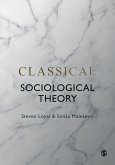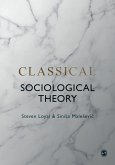Beginning classical social theory introduces students and educated general readers to thirteen key social theorists by way of examining a single, exemplary text by each author, ranging from Comte to Adorno. It answers the need for a book that helps students develop the skill to critically read theory. Rather than learning how to admire the canonical theorists, readers are alerted to the flow of their arguments and the texts' contradictions and limitations. Having gotten 'under the skin' of one key text by each author will provide readers with a solid starting point for further study. The book will be suitable as the principal textbook in social theory modules as much as alongside a more conventional textbook as a recommended additional tool for self-study. It will appeal to undergraduate and postgraduate students as well as educated lay readers.
Dieser Download kann aus rechtlichen Gründen nur mit Rechnungsadresse in A, D ausgeliefert werden.









